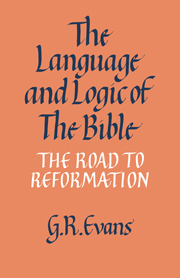Summary
The Protestant sixteenth century saw changes in the study of the Bible which had huge consequences. A new textual criticism, an acceptance of translations into the vernacular, new theological preoccupations, brought elements in the Bible's teaching which had not been so apparent before to a lasting prominence. It was felt that a necessary break was being made with the traditions of the late Middle Ages, that there was much which had to be rejected in the scholasticism of previous generations. Erasmus of Rotterdam wrote to his friend Martin Dorp in May, 1515:
What connection is there, I ask, between Christ and Aristotle? Between the petty fallacies of logic and the mysteries of eternal Wisdom? What is the purpose of this maze of disputations? How much of it is deadening and destructive by the very fact that it breeds contention and disagreement! Some problems, of course, should be investigated and others definitely settled … But on the other hand, there are many problems which it would be better to pass over than to examine.
The reformers and the pioneers of the new criticism were not by any means always in agreement. Erasmus accuses Luther of a lack of the ‘courtesy’ of Christ himself: that ‘evangelical spirit’ which ‘has its own prudence, … its own courtesy and gentleness’.
- Type
- Chapter
- Information
- The Language and Logic of the BibleThe Road to Reformation, pp. 1 - 4Publisher: Cambridge University PressPrint publication year: 1985



